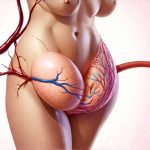The female body undergoes remarkable hormonal fluctuations throughout life, most notably during the menstrual cycle and again during perimenopause and menopause. These shifts aren’t isolated events; they orchestrate changes across numerous physiological systems, including the digestive system. While many associate these periods with emotional changes or hot flashes, a less discussed but significant impact is on gastrointestinal function – leading to symptoms like bloating, altered bowel habits, heartburn, and even nausea. Understanding the intricate connection between hormones and digestion can empower individuals to better manage these experiences and seek appropriate support when needed. It’s crucial to remember that every woman’s experience is unique, and the severity of digestive issues varies greatly depending on individual sensitivity, lifestyle factors, and underlying health conditions.
Digestive symptoms are often dismissed as simply part of being a woman, or attributed to diet or stress. However, the hormonal shifts happening within the body play a substantial role. Estrogen and progesterone, the primary hormones involved in the menstrual cycle and menopause, have direct and indirect effects on gut motility (the speed at which food moves through the digestive tract), intestinal permeability (“leaky gut”), and even the composition of the gut microbiome – that vast community of bacteria living within our intestines. These changes can disrupt normal digestive processes, leading to a cascade of uncomfortable symptoms. This article aims to explore these connections in detail, providing insights into how hormonal fluctuations impact digestion and what strategies might offer relief. You can learn more about hormonal birth control and its effects on digestion too.
Hormonal Shifts During Menstruation and Their Impact on Digestion
The menstrual cycle is characterized by fluctuating levels of estrogen and progesterone. Typically, estrogen peaks around ovulation and then declines, while progesterone rises after ovulation and remains elevated until menstruation begins. These changes directly influence the digestive system in several ways. Estrogen, for instance, can increase gut motility, sometimes leading to diarrhea or looser stools. Conversely, a drop in estrogen during premenstrual syndrome (PMS) can slow down gut motility, resulting in constipation and bloating. Progesterone, on the other hand, tends to relax smooth muscle tissue throughout the body – including the digestive tract. This relaxation can lead to slower digestion, increased bloating, and heartburn as stomach acid is more likely to reflux into the esophagus.
- Increased intestinal permeability: Fluctuations in estrogen levels can also affect the integrity of the gut lining, potentially increasing intestinal permeability (often referred to as “leaky gut”). A compromised gut barrier allows undigested food particles and toxins to enter the bloodstream, triggering inflammation and contributing to digestive discomfort.
- Changes in gut microbiome: Hormonal shifts can influence the composition of the gut microbiome. Certain bacteria thrive in higher estrogen environments, while others may be suppressed. An imbalance in the gut microbiome (dysbiosis) has been linked to a wide range of digestive issues, including bloating, gas, and irritable bowel syndrome (IBS)-like symptoms. Understanding hormonal changes can help you better understand your body.
- Nausea & Vomiting: Some individuals experience nausea or even vomiting during their menstrual cycle, particularly during PMS. This can be attributed to hormonal fluctuations impacting the brain’s vomiting center, as well as increased sensitivity to smells or foods.
The timing of these digestive issues often corresponds with specific phases of the menstrual cycle. Many women report experiencing bloating and constipation in the days leading up to menstruation, while diarrhea may occur around ovulation. Recognizing these patterns can help individuals anticipate symptoms and adjust their diet and lifestyle accordingly. It’s also important to note that pre-existing digestive conditions like IBS can be exacerbated during certain phases of the menstrual cycle due to hormonal influences. Consider looking at stool changes if you notice any unusual patterns.
Hormonal Changes During Menopause & Digestive Distress
Menopause marks a significant transition in a woman’s life, characterized by declining estrogen levels and ultimately, cessation of menstruation. This period is often associated with well-known symptoms like hot flashes and night sweats, but digestive changes are frequently overlooked. As estrogen levels decline, the relaxing effect on smooth muscle tissue diminishes, potentially leading to increased gut motility and diarrhea in some women. However, paradoxically, others experience constipation due to reduced overall hormonal influence and decreased muscle tone in the digestive tract. This inconsistency highlights the individual nature of menopausal symptoms.
The loss of estrogen also impacts the gut microbiome, further contributing to digestive issues. The diversity of beneficial bacteria may decrease as estrogen levels decline, leading to dysbiosis and increased susceptibility to inflammation. Lower estrogen can also compromise the integrity of the gut lining, exacerbating intestinal permeability. This is a significant factor in why many women experience an increase in food sensitivities or intolerances during menopause. Nausea, while less common than other menopausal symptoms, can occur due to hormonal fluctuations impacting neurotransmitters and the brain’s vomiting center. If you’re navigating this time, menopause affects bloating and gut sensitivity in many women.
- Reduced digestive enzyme production: Estrogen plays a role in stimulating the production of certain digestive enzymes. As estrogen levels decline, the body may produce fewer of these enzymes, making it harder to properly digest food.
- Changes in gallbladder function: Estrogen influences gallbladder contraction and bile flow. Lower estrogen can lead to sluggish gallbladder function, potentially resulting in difficulty digesting fats and experiencing bloating or abdominal discomfort after fatty meals. Many find gallbladder removal impacts gas and digestion.
Managing Digestive Symptoms During Menstruation & Menopause – Dietary Strategies
Diet plays a crucial role in managing digestive symptoms associated with hormonal fluctuations. Focusing on easily digestible foods and avoiding trigger foods can significantly reduce discomfort. Here are some dietary strategies to consider:
- Prioritize fiber: While it might seem counterintuitive during constipation, adequate fiber intake is essential for overall gut health. However, increase fiber gradually to avoid bloating. Good sources include fruits, vegetables, whole grains, and legumes.
- Stay hydrated: Drinking plenty of water helps soften stools and promote regular bowel movements. Aim for at least eight glasses of water per day.
- Limit processed foods, sugar, and caffeine: These substances can exacerbate digestive issues and disrupt the gut microbiome.
- Identify food sensitivities: Keep a food diary to track which foods trigger your symptoms. Common culprits include dairy, gluten, soy, and artificial sweeteners. Consider an elimination diet under the guidance of a healthcare professional.
- Incorporate probiotics: Probiotic-rich foods like yogurt (with live cultures), kefir, sauerkraut, and kimchi can help restore balance to the gut microbiome. Probiotic supplements may also be beneficial, but it’s essential to choose a high-quality product with diverse strains.
Managing Digestive Symptoms – Lifestyle Modifications
Beyond diet, certain lifestyle modifications can also help alleviate digestive discomfort during hormonal fluctuations. Regular exercise promotes gut motility and reduces stress, which is known to exacerbate digestive symptoms. Stress management techniques like yoga, meditation, or deep breathing exercises can further reduce inflammation and improve gut function. Getting adequate sleep (7-8 hours per night) is also crucial for overall health and well-being, including digestive health.
- Mindful eating: Pay attention to your body’s signals of hunger and fullness. Eat slowly and savor each bite. This can help prevent overeating and improve digestion.
- Regular physical activity: Aim for at least 30 minutes of moderate-intensity exercise most days of the week.
- Stress reduction techniques: Incorporate stress-reducing activities into your daily routine, such as yoga, meditation, or spending time in nature.
When to Seek Medical Advice
While many digestive symptoms associated with hormonal fluctuations can be managed through lifestyle and dietary changes, it’s important to seek medical advice if:
- Symptoms are severe or persistent
- You experience unexplained weight loss
- You notice blood in your stool
- You have a family history of gastrointestinal disorders
- Digestive issues significantly interfere with your quality of life. A healthcare professional can help rule out other underlying conditions and recommend appropriate treatment options, such as medication or referral to a gastroenterologist. Never self-diagnose or attempt to treat serious health concerns without professional guidance. It’s also important to discuss any supplements you’re considering taking with your doctor to ensure they don’t interact with medications or have unintended side effects. Understanding how weather affects acid reflux symptoms can also help you pinpoint triggers. Finally, consider using tools for gut checks during significant hormonal changes to stay proactive about your health.


















